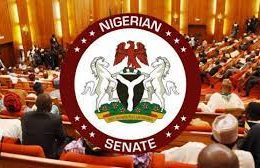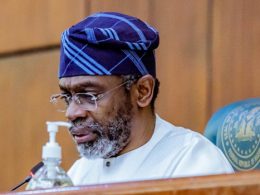Former President Dr Goodluck Jonathan has added his voice to the growing call for electronic transmission of election results, stressing that the bid by the Independent National Electoral Commission (INEC) to introduce more electronic means in the conduct of elections would enhance the electoral body’s processes in the conduct of free and fair elections.
Dr Jonathan noted the nation has made incremental progress towards deepening the roots of democracy, adding that Nigerians want more to be done by politicians to make the democratic rule work better for the people.
The former President stated this on Wednesday in Abuja while delivering a paper titled ‘Human Security and National Development: The Whole Society Approach’ at the National Defence College Course 30 Inauguration Lecture.
He said: “I have always made the case that electronic voting is the way to go, if we truly desire to secure the credibility and integrity of our elections. It is difficult, therefore, to understand why the argument against the possibility of electronic transmission of election results continues to subsist, despite all the advancement made in information and communication technology, over the years.”
“I want to appeal to members of the National Assembly to always ensure that they do not embark on measures that could hinder the progress and independence of INEC. If they have to amend the electoral law, they should do so in a manner that would enhance INEC’s processes in its performance of its duties, especially through the adoption of innovations in ICT to aid its operations.
“Since the beginning of the Fourth Republic, our nation has made incremental progress towards deepening the roots of the nation’s democracy. The fact that questions are today being asked by the people on the direction of that progress means that Nigerians appreciate democracy but expect us to do more to make it work better for our people and the country.
There is the need for those involved in the ongoing electoral reforms to review their efforts and ask themselves some tough questions. That way, they will be able to determine whether they are advancing the course of democracy by working to enhance and protect the constitutionally guaranteed duties of INEC or seeking to encumber the body by assuming positions, capable of negatively affecting the exercise of its independence, in the conduct of elections.
Democracy, Jonathan further stated, may not have all the answers to our national challenges but the truth is that a truly democratic system narrows the space for strife and conflicts, adding that the independence of the electoral management body, is the key plank upon which a thriving democracy rests.
“From my experience in leading election observation missions to many countries, people hardly go to court to contest election results in countries where the processes are credible and transparent, because of the level of confidence in the system.
“It is not exactly the same here. In Nigeria, the system is such that as politicians prepare for elections, they also prepare for litigation. I recall that as a Vice President, then at one international engagement, I asked my counterpart, the Deputy President of South Africa about his country’s experience with post-election court actions, and he expressed surprise that people go to court after elections.
I have always said that we have to develop our democracy to a level were going to court on election-related issues, will cease to be a viable option for politicians.”
The former President whose lecture focused on the whole society approach to human security further stressed that security should be everybody’s responsibility.
He said: “Everybody should be involved in securing the country. Yes, the government will do its part but we as individuals should also do our own part.
“My humble suggestion is that government and stakeholders should do a lot of dialogue. When you start talking, it reduces the anger in people.”
He also identified fear as a key factor in human development, adding that nations should place emphasis on human security as a means of mitigating the effect of fear in society.
He said: “There is indeed a corresponding relation between fear and economic growth. Nations, where people live in fear, tend to record the reduced economic activity and less development than others.
“In many circumstances, the fear factor in human survival, prosperity and security requires that more should be done to restore hope in the people and in their economic wellbeing.
“As a nation, the security architecture must accommodate the management of fear in the land because of the place of fear in human development and national growth.”










